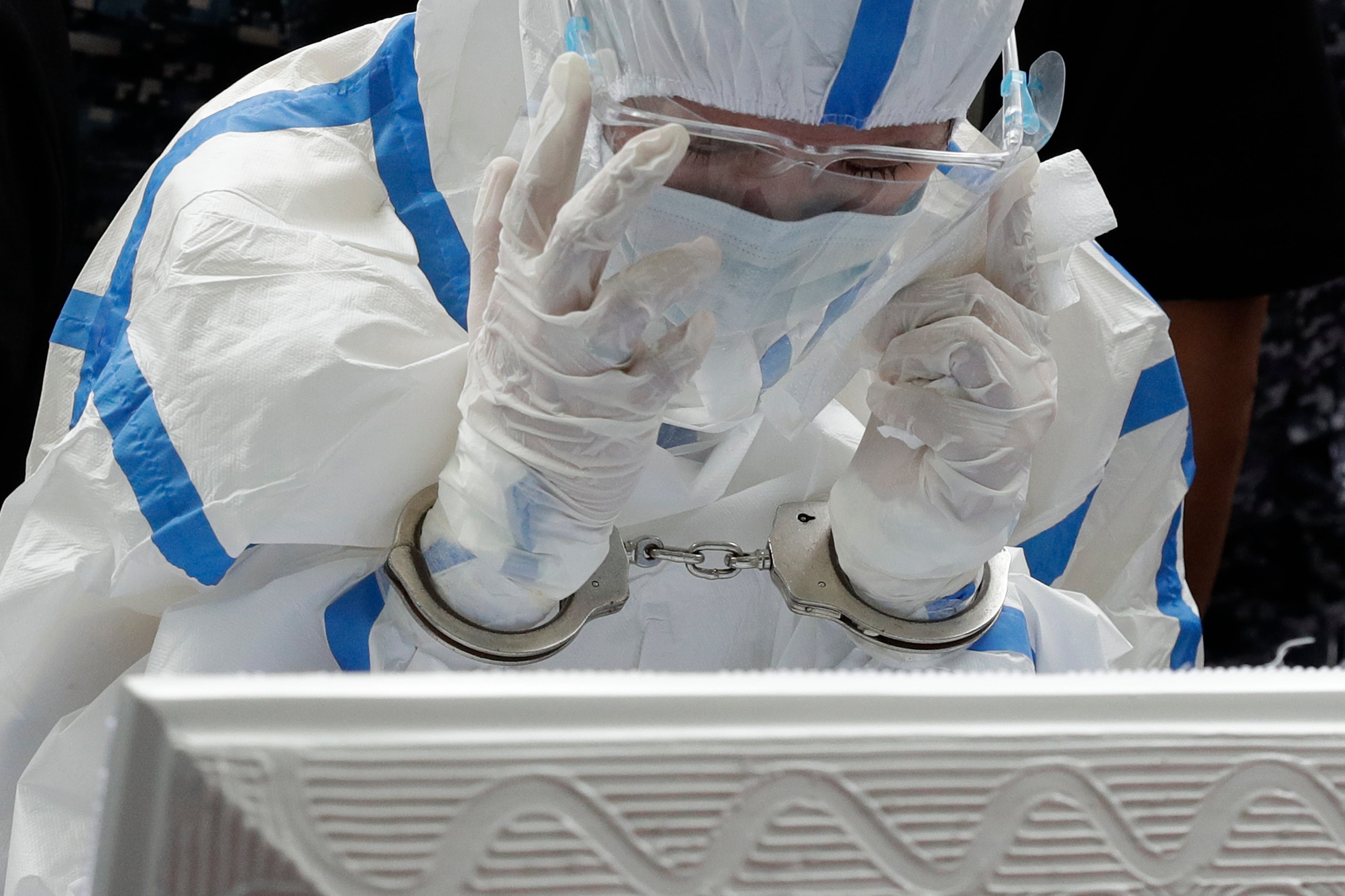Philippine activists say detainee's treatment was cruel
Philippine left-wing groups are criticizing the treatment of a detained activist who was allowed by a Manila court to attend her baby’s burial but was forced to wear handcuffs and was heavily guarded by armed escorts as she quietly wept

Your support helps us to tell the story
From reproductive rights to climate change to Big Tech, The Independent is on the ground when the story is developing. Whether it's investigating the financials of Elon Musk's pro-Trump PAC or producing our latest documentary, 'The A Word', which shines a light on the American women fighting for reproductive rights, we know how important it is to parse out the facts from the messaging.
At such a critical moment in US history, we need reporters on the ground. Your donation allows us to keep sending journalists to speak to both sides of the story.
The Independent is trusted by Americans across the entire political spectrum. And unlike many other quality news outlets, we choose not to lock Americans out of our reporting and analysis with paywalls. We believe quality journalism should be available to everyone, paid for by those who can afford it.
Your support makes all the difference.Philippine left-wing groups on Friday criticized the treatment of a detained activist who was allowed by a Manila court to attend her baby’s burial but was forced to wear handcuffs and a sweltering protective suit and was heavily guarded by armed escorts as she quietly wept.
Critics have pointed to the treatment of Reina Mae Nasino and her 3-month-old daughter, River, as indicative of what they say is the “barbarity” of President Rodrigo Duterte and law enforcers toward perceived opponents.
Nasino, a 23-year-old human rights worker, and two other activists were arrested last year in the Manila office of a left-wing group. They were charged with illegal possession of firearms and explosives but their lawyers alleged that the weapons, including a grenade, had been placed by police in the office. Police have denied the allegation.
A Manila court granted Nasino three hours Wednesday to visit her baby’s wake, where she was prevented by her jail escorts from speaking to journalists, and another three hours on Friday to attend the burial. Dozens of police and jail guards secured her, including a heavily armed SWAT team for the burial.
At the cemetery, Nasino struggled to wipe her tears with her handcuffed hands and face mask and shield as she stood holding her baby’s white coffin. Her armed escorts rejected appeals to remove her handcuffs even briefly as she grieved.
Human rights lawyer Edre Olalia, whose group provides legal advice to Nasino, described the funeral as “grotesque, merciless, heartless.”
Dozens of placard-carrying protesters were prevented from marching from the funeral parlor to the cemetery, where only about 30 of Nasino's relatives and friends were allowed in.
“Such cruelty and barbarity is unacceptable,” said Renato Reyes, a leader of the left-wing group Bayan.
Interior Undersecretary Epimaco Densing III told the ABS-CBN news network that more law enforcers secured Nasino during the burial because her case had drawn public attention, but denied it was “overkill.” He said the protective suit was used because of the coronavirus pandemic.
Nasino was pregnant when she was arrested and gave birth under guard in a Manila hospital in July, said Edrre Olalia, one of her lawyers. She was separated from her baby who was cared for by Nasino's mother and died of acute gastroenteritis.
The Commission on Human Rights said it is investigating Nasino’s case “considering that there are allegations that her detention is a form of harassment due to her human rights work.”